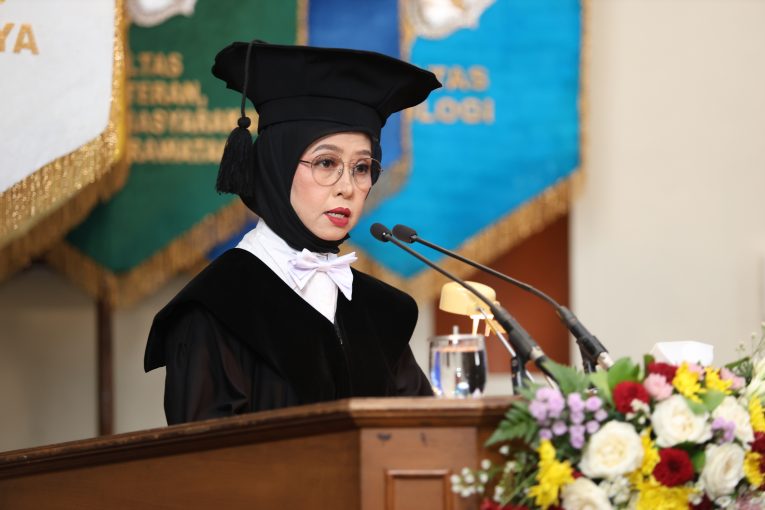
Yogyakarta, 6 May 2025 — The Faculty of Cultural Sciences, Universitas Gadjah Mada (FIB UGM), officially inaugurated Prof. Dra. Anggraeni, M.A., Ph.D. as a Professor in the field of Prehistoric Archaeology. The inauguration ceremony took place on Tuesday (6/5) from 09.00 to 10.00 WIB at the UGM Senate Hall, attended by family members, academic colleagues, and invited guests from various institutions.
In her inaugural speech titled “Adaptive Strategies in Prehistoric Societies and Their Relevance Today”, Prof. Anggraeni delivered an in-depth reflection on how prehistoric communities—particularly hunter-gatherers and early village societies—developed adaptive strategies to survive in response to various environmental and social challenges.
She emphasised that these strategies were not only shaped by regional trends that occurred thousands of years ago but were also passed down and remain recognisable in contemporary Indonesian life. “Today, we admire the beautiful, colourful woven fabrics, yet few may realise that the art of weaving in Indonesia has roots dating back at least two millennia,” she noted.
Prof. Anggraeni highlighted that weaving patterns and colours are not chosen arbitrarily; rather, they are shaped by collective social agreements that reflect local values and social structures. She cited the Sekomandi weaving tradition from Kalumpang as an example, where the motifs symbolise the human life cycle—from birth to death.
Through her inauguration, Prof. Anggraeni reaffirmed the importance of prehistoric archaeological studies in understanding cultural roots and local wisdom that remain relevant in addressing modern-day challenges. She encouraged the public to appreciate and study cultural heritage as part of a collective strategy toward a more adaptive and sustainable future.
This inauguration marks a significant milestone in Prof. Anggraeni’s academic journey, known for her extensive contributions to prehistoric research and the preservation of Indonesia’s cultural heritage.
[Public Relation Faculty of Cultural Sciences, Bulan Churniati]

